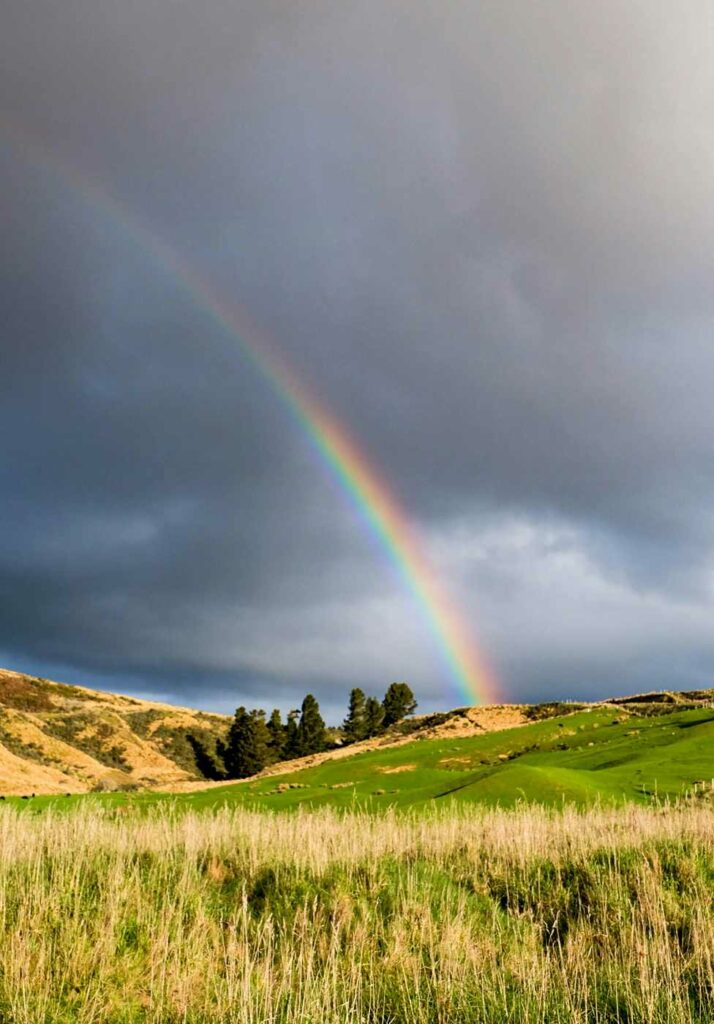Losing someone dear is never easy, and finding the right words to honour their memory can often feel overwhelming. Amidst the sorrow and reflection, poetry offers a way to express emotions that may otherwise remain unsaid. Nature-themed poems, in particular, carry a unique resonance during such times. They remind us of the ongoing cycles in the world around us — from the blooming of spring to the quiet rest of winter — mirroring life’s ebb and flow.
For many, the connection between nature and life’s impermanence brings comfort. It reflects both the beauty and fragility of existence, offering a quiet solace to those grieving. Whether it’s the soft rustling of leaves in the wind or the eternal return of the seasons, nature reminds us that life continues, even after loss. The following collection of poems, inspired by nature, can help guide you through this difficult time, providing a source of peace as you honour your loved one’s journey.
Nature-Themed Poems on Life and Death
Nature’s changing seasons, a timeless beauty, are often used as metaphors for the cycle of life and death, capturing the beauty, brevity, and certainty of both. In this section, we explore a few deeply moving poems that use nature to reflect on mortality, growth, and the continuity of life.
“Spring and Fall” by Gerard Manley Hopkins
Hopkins’ “Spring and Fall” takes us on a journey through the contrasting stages of life. In the poem, the natural transition from the vibrancy of spring to the decay of autumn symbolises the inevitable cycle of human existence. As the seasons change, so do we — from the innocence of youth to the realities of adulthood and, eventually, the acceptance of life’s end.
The poem speaks of the sorrow that accompanies loss, but it also quietly suggests that grief, much like the fall of leaves in autumn, is a natural part of life. Rather than something to be feared, death is portrayed as a continuation of life’s journey. For those facing the passing of a loved one, Hopkins’ imagery of nature’s unrelenting cycle can offer a poignant reminder that while we mourn, the world around us remains steadfast in its rhythm — and so, too, do our memories of those we’ve lost.
Reflection for the Reader
Consider how the changing seasons have marked different chapters of your own life. Just as spring always follows winter, there is the promise of renewal even in times of sorrow. What aspects of nature remind you of your loved one and the legacy they leave behind?
“Nothing Gold Can Stay” by Robert Frost
In just a few short lines, Robert Frost captures the transient beauty of life. His poem “Nothing Gold Can Stay” offers a bittersweet reflection on how fleeting life’s most precious moments can be. The image of early spring leaves blooming in gold only to wither soon after serves as a powerful metaphor for the transience of youth and vitality.
Frost’s message, though tinged with melancholy, is not without hope. He reminds us that the fleeting nature of life’s beauty is what makes it precious. For those grieving, the poem may serve as a gentle reminder to cherish the memories of their loved one — to see their life as a brilliant, if brief, flash of gold that remains valuable even in its passing.
Reflection for the Reader
What “golden” moments from your loved one’s life stand out in your memory? In the same way that nature’s fleeting beauty holds a special place in our hearts, these moments continue to hold meaning even after they’ve passed.
Popular Nature-Themed Funeral Poems:
When we lose someone dear, it is often the familiar elements of nature that bring the most comfort. Many poets have captured this connection, offering verses that resonate deeply during times of grief. These famous nature-themed funeral poems speak to the human experience of loss, renewal, and the enduring bond between the living and those who have passed.
“All Nature Has A Feeling” by John Clare
John Clare’s “All Nature Has A Feeling” beautifully celebrates the eternal aspects of the natural world, reminding us that everything in nature speaks to a cycle far more significant than ourselves. Clare describes how the landscape itself seems to hold a quiet awareness, suggesting that even in death, there is a connection to life beyond our understanding. The poem’s tone is one of gentle reverence, urging us to take comfort in the idea that nature continues to thrive, echoing the vitality of those we’ve lost.
This poem offers a calming perspective in the context of a funeral—that death is not an end but a transformation. The imagery of nature’s constant movement can soothe the grieving heart, providing reassurance that life continues, even in different forms.
Reflection for the Reader
As you reflect on this poem, consider how nature — whether it’s the rustling of leaves or the changing seasons — may be a way to find peace and feel close to your loved one. Do you find peace in the thought that their essence might continue in the natural world around you?
“I Do Not Think My Song Will End” by Jonny Hathcock
Jonny Hathcock’s poem “I Do Not Think My Song Will End” presents a comforting idea: that our presence lives on in the world long after we have gone. The poet imagines his essence remaining in the trees, flowers, and winds, offering reassurance to loved ones that his spirit is still part of the earth’s natural beauty. For those mourning, this poem is a gentle reminder that the person they’ve lost is never truly gone but exists in the natural elements they loved, creating an enduring connection.
The notion of continuing to live on through nature can provide immense comfort. It offers a way to shift the focus from loss to a form of presence — one that may be quieter but is no less accurate.
Reflection for the Reader
Think about the ways in which your loved one’s memory lives on through the natural world. Is there a particular flower, tree, or place in nature that reminds you of them?

“Look For Me In Rainbows” by Conn Bernard
Conn Bernard’s “Look For Me In Rainbows” is a tender and hopeful poem that invites those left behind to find their loved ones in the beauty of nature—particularly in rainbows. The rainbow, with its spectrum of colours, symbolises hope, peace, and the enduring connection between the departed and the living. It suggests that while our loved ones may no longer be with us physically, their presence can still be felt in the world’s natural wonders.
This poem is often chosen for its comforting message of continuity. It shifts the focus from sadness to hope, offering a way for those grieving to remember their loved ones in the bright and beautiful moments of life.
Reflection for the Reader
Have you ever seen a rainbow and felt a sense of peace or connection? This poem encourages you to look for signs of your loved one in the beauty around you.
“The Peace of Wild Things” by Wendell Berry
Wendell Berry’s “The Peace of Wild Things” speaks to the solace that nature can provide in times of despair. The poem describes a retreat into the wilderness, where the speaker finds peace away from the pressures of life and the anxieties of the future. For those grieving, the idea of finding calm simplicity is deeply resonant. Berry reminds us that even in our darkest moments, nature offers a refuge — a place where we can find comfort in the steady presence of wild things.
This poem can be a powerful reading at a funeral, particularly for those who find solace in the outdoors. It encourages us to seek peace in the beauty and stillness of nature, even amidst our grief.
Reflection for the Reader:
Have you ever turned to nature for peace in difficult times? Consider how a walk in the woods, the sight of a lake, or the sound of birds might offer a moment of quiet comfort in your mourning.
“The Rose Still Grows Beyond the Wall” by A. L. Frink
In “The Rose Still Grows Beyond the Wall,” Frink uses the image of a rose pushing through the cracks in a wall to symbolise the enduring spirit of a loved one who has passed. The rose’s resilience in the face of obstacles becomes a metaphor for life continuing beyond death. This poem offers a hopeful message — that even though someone is no longer with us, their spirit remains strong, growing in ways that we might not immediately see.
For those grappling with loss, this poem reminds them that their loved one’s essence continues, much like a rose growing beyond the physical barrier of a wall.
Reflection for the Reader
Does this image of the rose bring to mind your own loved one’s strength or resilience? How might their memory continue to grow and flourish, even after they’re gone?

“Trees” by Joyce Kilmer
Joyce Kilmer’s “Trees” is a simple yet profound celebration of the natural world, particularly the majesty of trees. Though it doesn’t directly address death, the poem’s reverence for nature makes it a fitting tribute for those who found comfort or joy in the outdoors. Kilmer’s admiration for the strength and beauty of trees can be seen as a metaphor for the qualities we admire in those we love — their steadfastness, their grace, their quiet but powerful presence.
This poem is often chosen for funerals because of its timeless appreciation of nature’s beauty. For those grieving, it serves as a reminder that, like the trees, our loved ones leave behind a lasting impact.
Reflection for the Reader
What qualities of nature — strength, beauty, resilience — remind you of the person you’ve lost? How can this poem offer a sense of peace as you reflect on their life?
Lesser-Known Nature-Themed Poems:
While some nature-themed funeral poems are well-known for their comforting messages, there are lesser-known works that offer equally powerful reflections on life, death, and nature’s role in both. These poems can be a beautiful way to honour a loved one, offering a unique and thoughtful touch to a memorial service.
“Finis” by Walter Savage Landor
In “Finis”, Landor contemplates the natural passage of time and the acceptance of death. The poem draws upon vivid imagery of the earth and the changing elements to depict life’s fleeting nature. There’s a quiet sense of readiness in the speaker’s tone — a peaceful acceptance of life’s end, portrayed not as something to be feared but as a natural progression.
This poem resonates deeply with the idea of embracing death as part of life’s journey. It offers a reflective and calm perspective, which can be particularly comforting for those in mourning. The celebration of nature’s beauty, even in the face of death, suggests that there is still grace and serenity to be found in the cycle of life.
Reflection for the Reader
Have you thought about the ways in which the natural world prepares us for life’s transitions? In moments of grief, does the steady rhythm of nature help you find peace in the face of loss?
“The Death Bed” by Thomas Hood
Thomas Hood’s “The Death Bed” is a poignant portrayal of the final moments of life. The poem captures the delicate transition from life to death with grace, using gentle natural imagery to describe the process of passing. Phrases like “the wave of life” evoke the ebb and flow of existence, reminding us that death is not abrupt but a quiet movement from one state to another.
For those grieving, this poem can offer solace by softening the finality of death. Hood’s imagery suggests that death is part of the natural cycle, something as gentle and inevitable as the waves on the shore. The tenderness with which he describes the experience may bring comfort to those who are struggling with the idea of letting go.
Reflection for the Reader
How does this poem change your perspective on the act of dying? Does the comparison to natural elements, like waves, help ease the fear or sadness that often accompanies thoughts of death?
As we navigate the difficult journey of grief, poetry can provide a sense of connection and understanding, primarily when it draws upon nature’s imagery to reflect the cycle of life and death. The poems we’ve explored here — whether well-known or lesser-known — offer comfort through their timeless wisdom. They remind us that just as nature continues to evolve and renew itself, so too do the memories and legacies of our loved ones persist.
Whether you find solace in the image of a rose growing through a wall, a rainbow after a storm, or the quiet peace of wild things, these poems offer a way to honour the life of someone who has passed while also finding comfort in the world around you.
As you reflect on the themes of life, death, and renewal found in nature-themed funeral poems, we hope that you are able to draw comfort from their words and find a sense of peace in the continuing cycle of life.
If you’re looking for assistance in creating beautiful and meaningful funeral booklets or cards to honour your loved one, Baileys Print Co is here to help. With compassionate care and attention to detail, we can guide you through the process of designing and printing a personalised tribute. Contact Baileys Print Co today for support in creating a lasting memorial that truly reflects the life of your loved one.
Contact Baileys Print Co via our contact page or give us a call on (03) 8060 4445 to discuss your needs with our dedicated team.
 Skip to main content
Skip to footer
Skip to main content
Skip to footer






